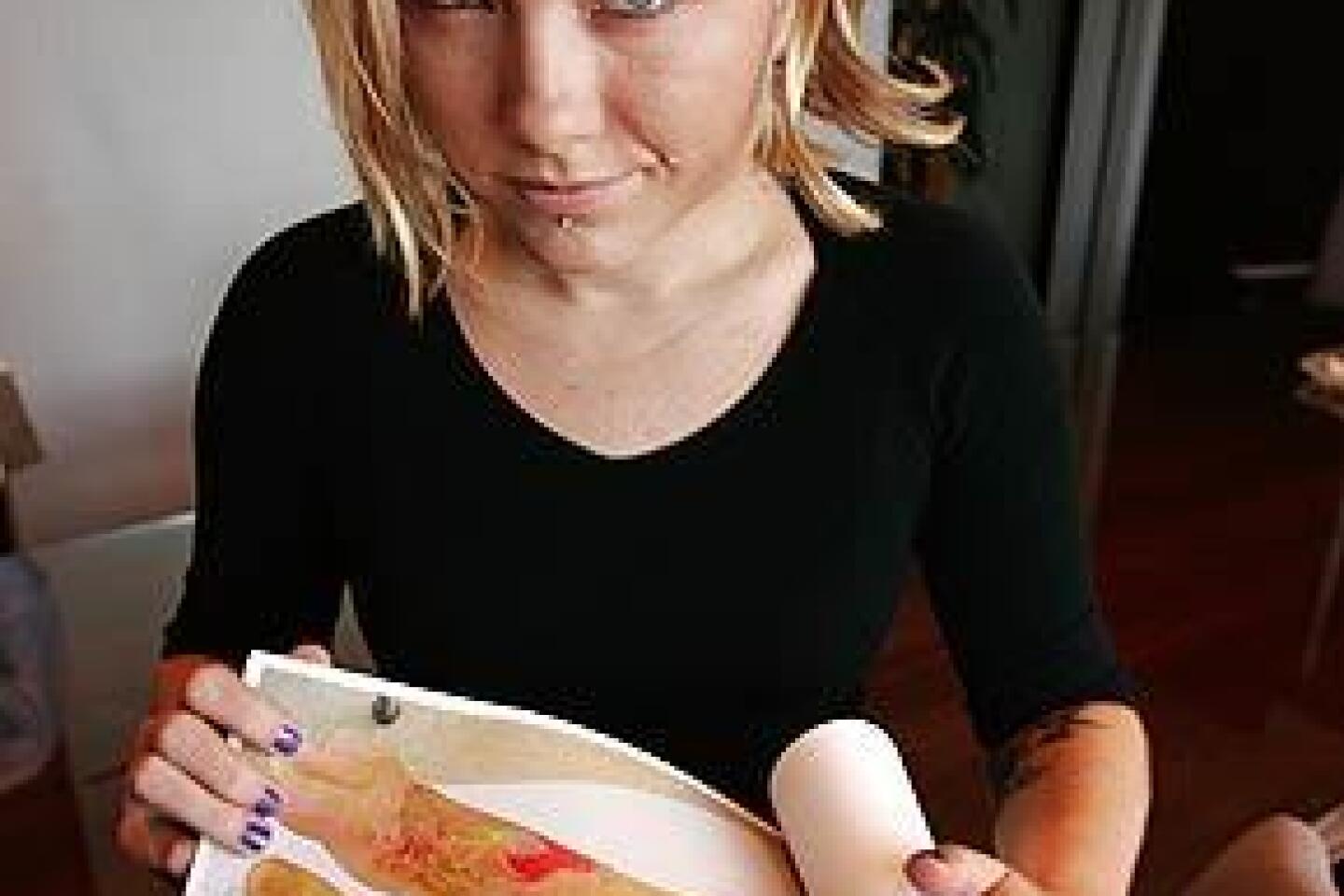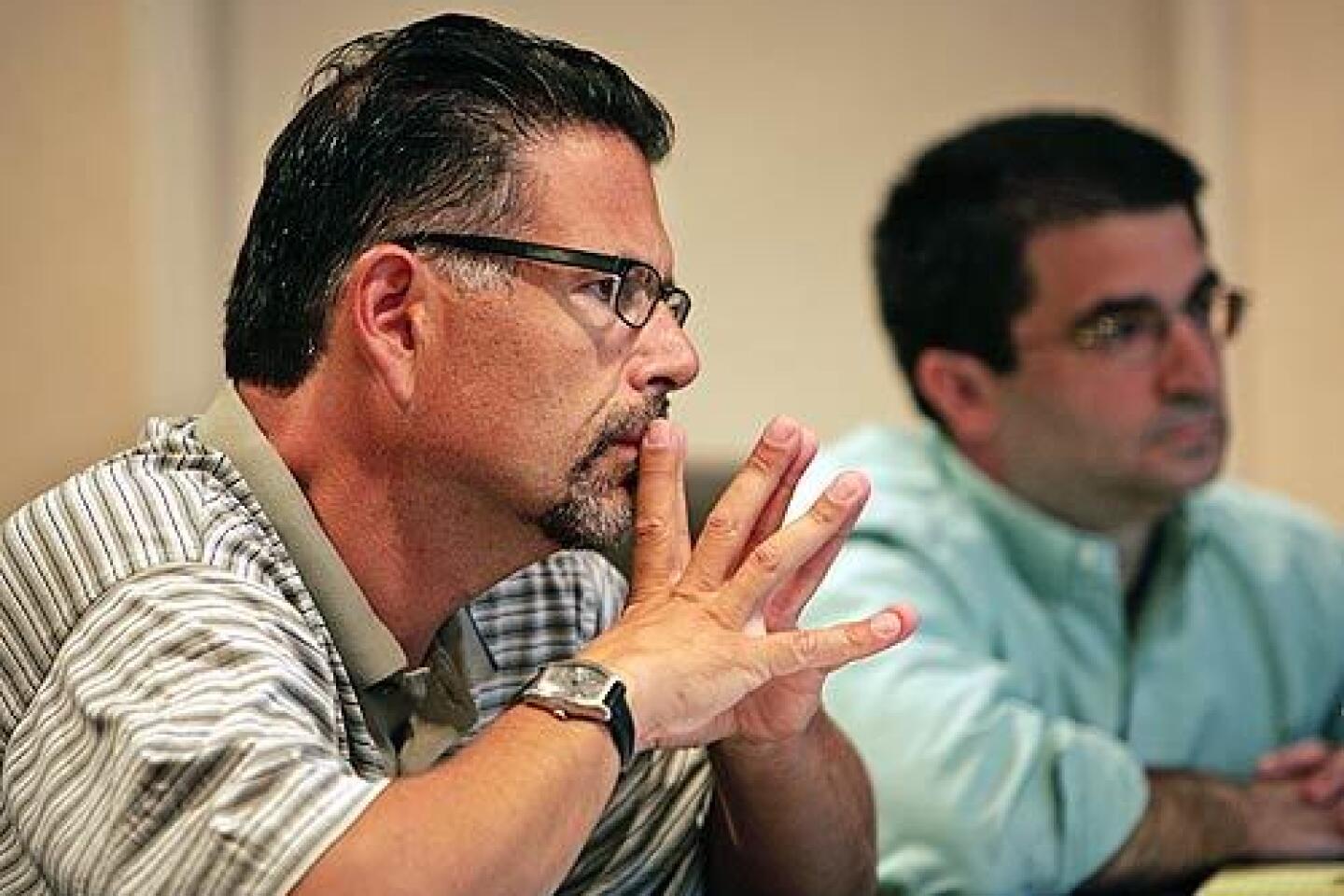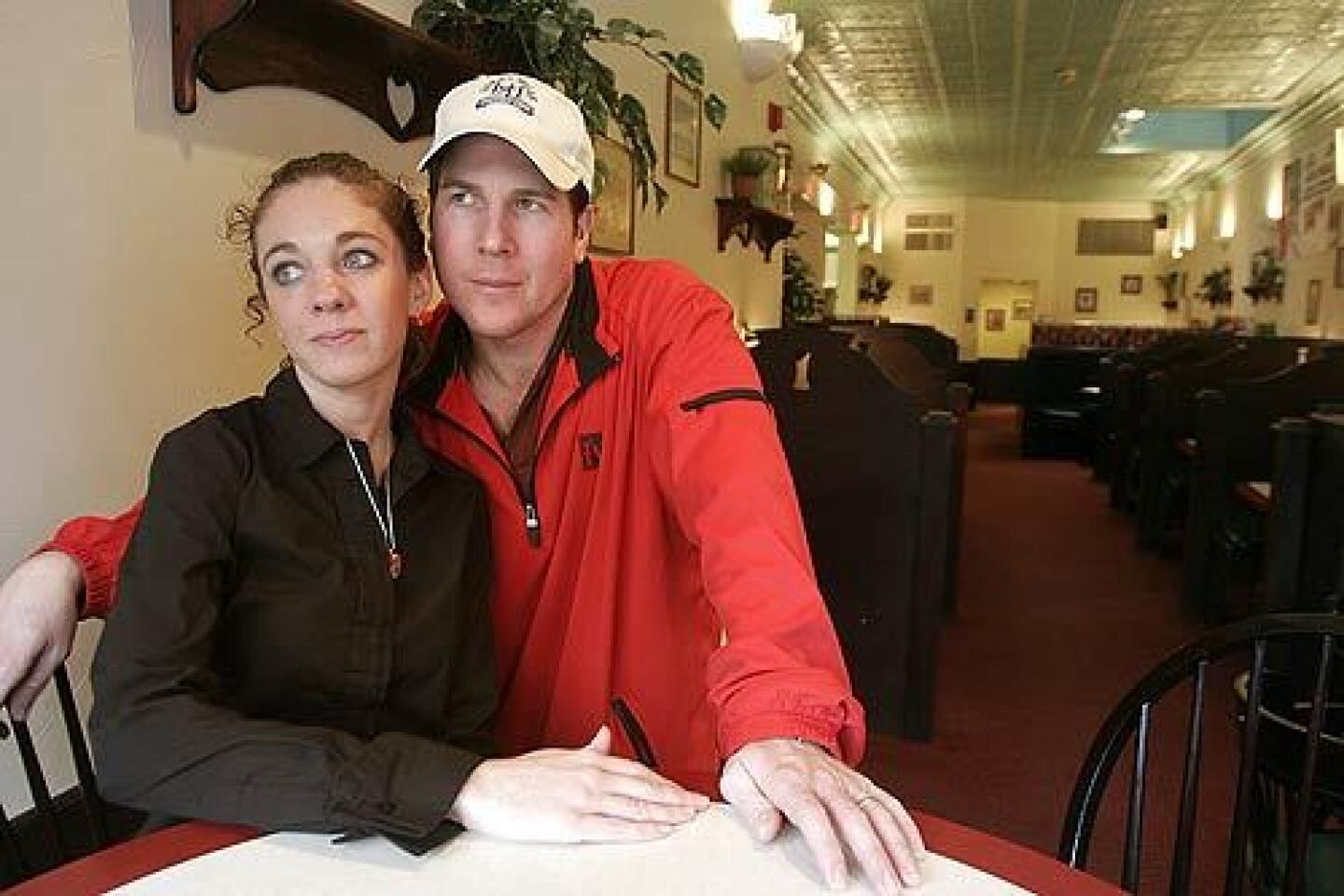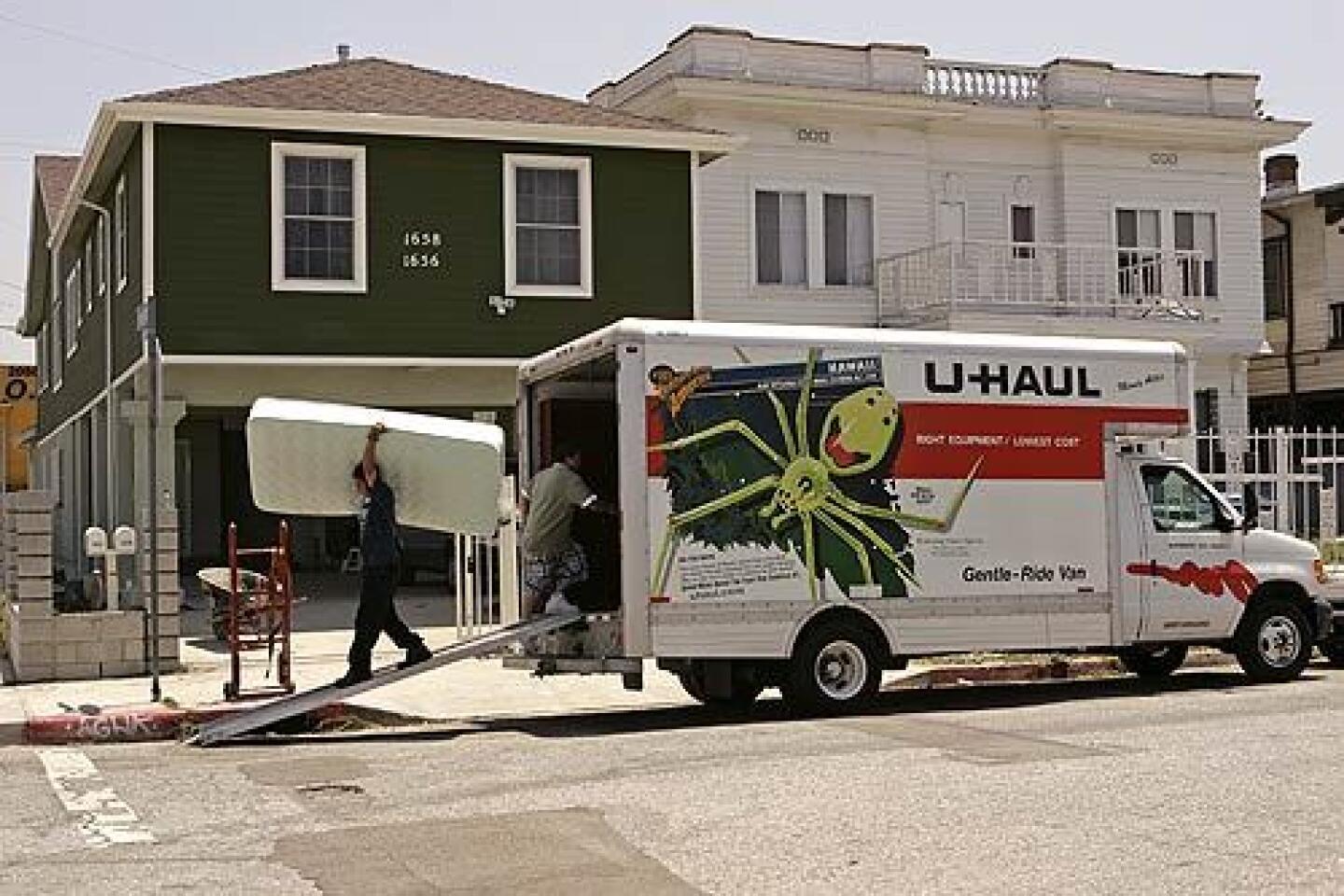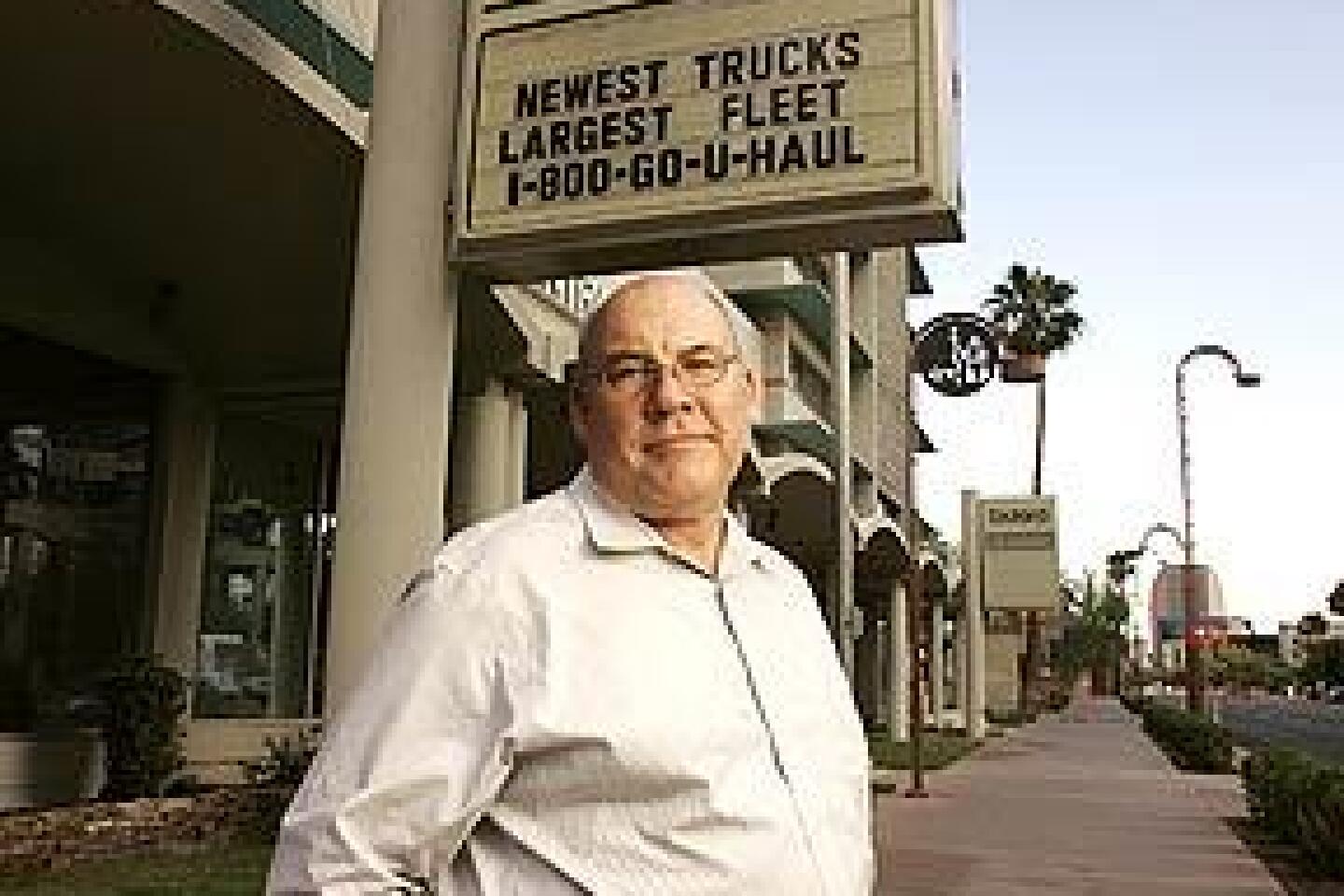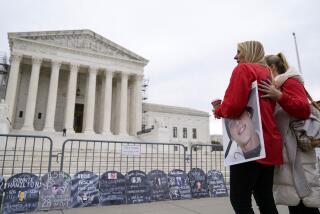Corporate sibling called ‘mean-spirited’
U-Haul International Inc. has had its share of courtroom dramas, but none quite like one involving its corporate sister, Oxford Life Insurance Co.
When Oxford balked at paying a modest claim from a badly injured policyholder, it was hammered with a $39-million verdict. The judge denounced Oxford’s conduct as the worst he’d ever seen.
The policyholder, West Virginia farmer Charles Kocher, had long wanted a Ford pickup. In 1999, at the urging of his wife, who was dying of cancer, he tapped their savings for a down payment on a used truck. Kocher paid Oxford more than $700 for a credit insurance policy that would pay off the $11,563 loan if he suffered dismemberment or death.
Soon afterward, Kocher’s right foot was crushed in a tractor accident. He had several surgeries that amounted to a progressive amputation of his foot and lower leg.
Oxford (like U-Haul a subsidiary of Amerco) made a few loan payments on the pickup, then stopped for several months. Kocher later testified that a “very nasty” Oxford representative told him: “We’re not paying the loan off because it’s not a full amputation.”
The agent also accused him of deliberately maiming himself to collect on the policy, Kocher said.
With bank delinquency notices piling up, Kocher chained the truck to his trailer home so it couldn’t be repossessed. Finally, he sold the pickup to save his credit rating and pay off the loan. He was unaware that Oxford had resumed making payments.
Kocher sued Oxford. While preparing for trial, his lawyer discovered several complaints to state regulators from policyholders whose claims had been denied by what Oxford called its Medical Board.
Oxford then admitted it had no Medical Board, but defended the term as “a broad reference” to its occasional use of consulting doctors.
In February 2002, Larry Goodyear, Oxford’s senior vice president and second-in-command, went to West Virginia to give a deposition in Kocher’s case.
Without telling Kocher’s lawyer, Goodyear showed up unannounced at the injured man’s door. Kocher let him in, and they chatted, in what the court would later condemn as an improper attempt to induce Kocher to settle.
At his deposition the next day, Goodyear denied any such motive and said he simply wanted to apologize for the company’s handling of Kocher’s claim.
Goodyear was confronted with the fact that his assistant had misrepresented herself to the Kochers over the phone to get directions to their house. She had pretended to be a Federal Express agent with a package to deliver.
At first, Goodyear said he believed his assistant had gotten the directions from a website. Later, he acknowledged this was not true. As the West Virginia Supreme Court subsequently observed: “The record suggests that the particular Internet site did not give information such as ‘look for a mailbox that has no name on it.’ ”The trial judge, Mark A. Karl of Wetzel County Circuit Court, said Goodyear’s visit “clearly violated” rules of legal discovery. He noted that Kocher’s lawyer had previously warned Oxford against approaching his client directly about a settlement.
Citing “a pattern of improper conduct” by Oxford, including withholding information about other pending lawsuits, Karl punished the company by throwing out its defense and finding it liable by default. All that remained was for the jury to set damages.
The judge denounced “the extreme suffering inflicted upon Charles Kocher by a very mean-spirited, callous company.” Karl said that “in 31 years of practicing law and serving as a judicial officer, this court has never seen conduct of a more serious nature by a party.”
The jury awarded Kocher $5 million in compensatory and $34 million in punitive damages. Oxford appealed, contending that nothing it had done warranted the judge’s severe sanction.
In June 2004, the state Supreme Court upheld the compensatory damages but ordered a rehearing on the punitive damages, citing improper jury instructions.
Before the rehearing, Oxford settled the case in 2005 for $12.8 million.
More to Read
Inside the business of entertainment
The Wide Shot brings you news, analysis and insights on everything from streaming wars to production — and what it all means for the future.
You may occasionally receive promotional content from the Los Angeles Times.
